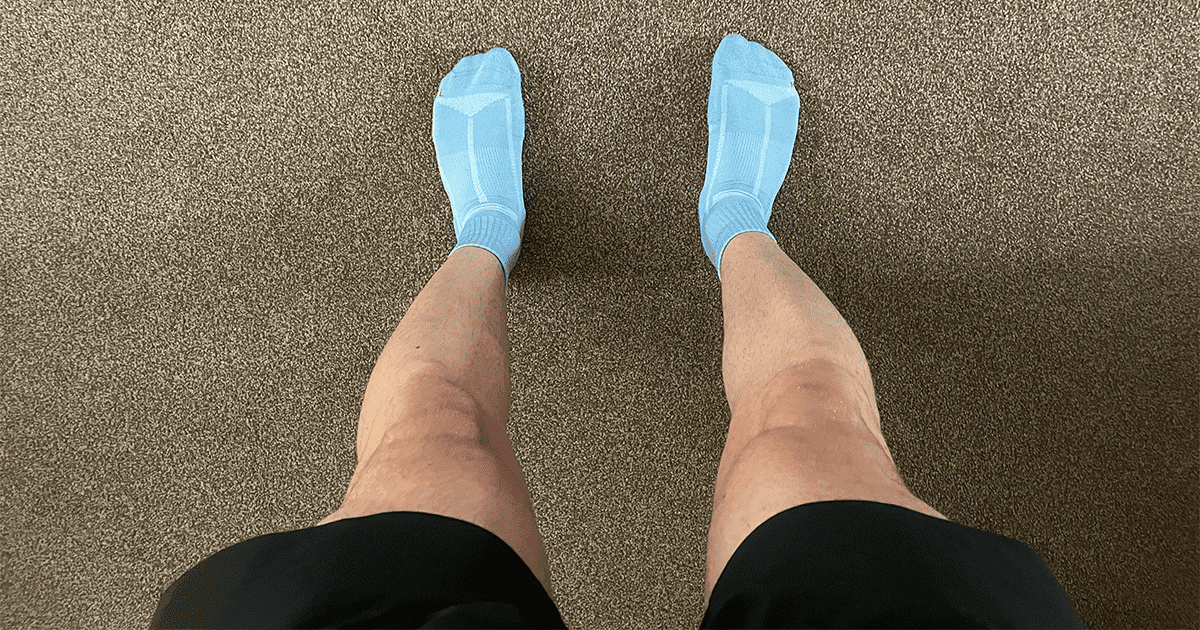5 Easy ways to make exercise a habit
Making a habit out of running and or exercise will take your training to the next level while improving your mental and physiological health.

A habit is something we do often or regularly. As you probably know, there are many good and bad habits. While smoking 20 cigarettes a day or staying up late every night is a bad habit, eating five portions of fruit and veg a day or exercising a minimum of five times per week are considered good habits.
While anything we do can essentially become a habit, we want to create healthy habits to improve our lifestyle and make our everyday life that much more enjoyable and productive.
For example, making exercise, a regular habit will allow us to receive many mental and physiological benefits. These include but are not limited to reduced stress, increased energy levels, improved memory, and enhanced quality of sleep.
This article will discuss the benefits of regular exercise, how long it takes to form a habit, and five ways to create a habit out of exercise.
Benefits of creating a habit out of regular exercise
There are many benefits to making exercise a habit. From improved mental health to a reduced risk of certain diseases, here are some of the many benefits of regular exercise:
- Decreased feelings of stress, anxiety, and depression
- Promotes weight-loss
- Improves bone density (protecting against osteoporosis)
- Increased energy levels
- Improved heart health
- Decreased risk of chronic diseases such as diabetes
- Improved skin health
- Reduced pain
- Improved libido
How long does it take to make exercise a habit?

Now that we know the many benefits of making a habit out of exercise, how long exactly does it take to form this habit?
A study published by health researchers at University College London examined the habits of 96 individuals. Each participant in the study was to choose a new habit and perform this for a total of twelve weeks. Participants were to report whether or not they performed their activity each day and how this behaviour felt.
Results of this study revealed that it takes approximately two months or precisely 66 days to form a new habit.
1. Exercise at the same time each day
It’s much easier to form a habit when you perform the activity at the same time either every day or on select days of the week. For example, running every Mon, Wed, Fri, and Sun at 7pm.
Creating this consistency within your schedule is key to creating a routine and a habit. The longer you stick to your new routine, the more likely it will form into a habit.
2. Make small changes

A study from the British Journal of General Practice back in 2012 revealed that making one small change at a time is much easier than making several.
For example, it’s much easier to create one healthy habit such as exercising for a minimum of 30-minutes per day than it is to exercise, eat healthier, and go to bed earlier all at the same time. Focusing on one activity to form a routine is much more successful and will increase the likelihood of you actually sticking to the habit.
Therefore, when beginning to incorporate exercise either daily or more frequently throughout the week, it’s important to make little to no other changes in your daily or weekly routine.
Ensure to start off slow, reducing your risk of injury while increasing the probability of sticking to your new routine of regular exercise.
3. Layout your gear beforehand
Before heading to work, school, or wherever you spend your day, laying out your gear beforehand is an easy way to increase your motivation to exercise.
Laying out your gear beforehand will create a reminder once home, while subconsciously reminding and preparing you throughout the day for the exercise to follow.
4. Make it fun!
You’re much more likely to form a habit of something you both look forward to and find fun. Finding a type of exercise, whether it be gymnastics, weight-lifting, running, cycling, or swimming, which you enjoy increases the likelihood of this later on becoming a habit.
Performing a form of exercise which you don’t look forward to and find unenjoyable will more than likely not become a habit.
5. Write it down

Did you know you’re up to 42-percent more likely to achieve a given behaviour or goal by writing it down? As revealed in a 2015 study, writing down your goals develops a connection with our brains and a sense of accountability which increases our chances of achieving these goals or behaviours.
We recommend writing down your ideal weekly exercise schedule and sticking to this best you can. Likewise, don’t get too hung up if you happen to miss a day. Get back on track as soon as possible, and it likely won’t affect you in the long run.
The bottom line
Making exercise a habit will improve our mental and physical health. From decreased stress, depression, and anxiety to improved heart health reduced blood pressure, and reduced pain, making exercise a habit will work wonders for your health.
To get started, we recommend following our five tips to creating a habit of exercise. These tips can also be used to develop many other healthy habits such as going to bed earlier, eating a healthier diet, drinking more water, and waking up earlier.

Matthew is a lifelong runner, chief tester of all products, the founder of Running101, and freelance content writer for active brands. When he’s not writing, he enjoys lifting weights, cycling in the Lake District, and watching fast cars drive in circles on a Sunday. He also has a BA in sport, exercise and physical activity from the University of Durham.




